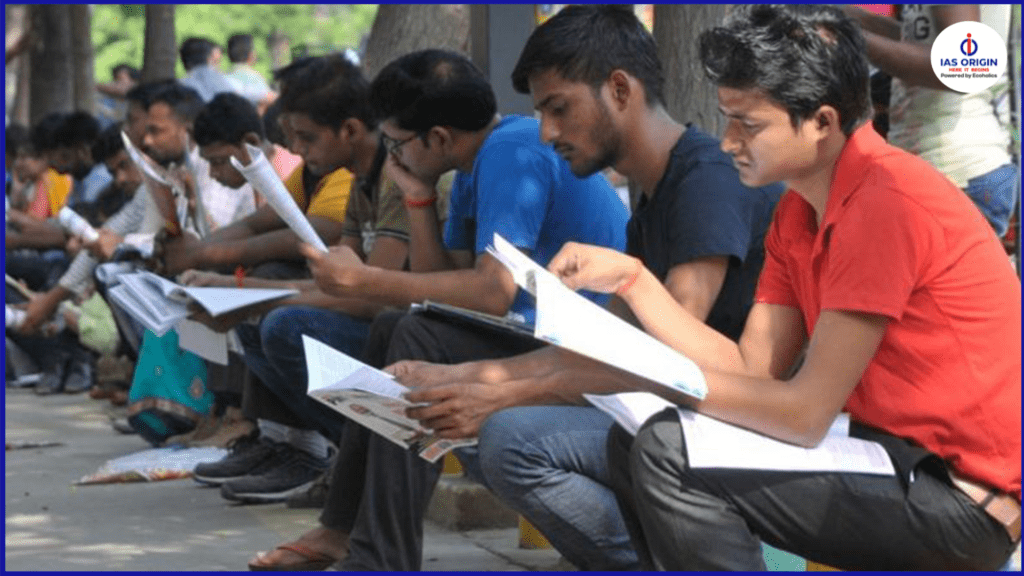
The Ultimate UPSC Preparation Timeline: A Month-by-Month Guide
- Here is a 30-month breakdown of the UPSC CSE preparation journey.
- Experts have tried to break the UPSC journey into palatable chunks.
UPSC Preparation is a daunting process; here’s a month-by-month guide providing you with a timeline to crack UPSC CSE in 30 months. Many aspirants dream of cracking UPSC CSE, walking through the gates of LBSNAA, Mussoorie, Uttarakhand, and becoming successful civil servants. But only a limited few every year get to live the dream; if you follow this month-by-month guide, the chances of becoming a successful civil servant can be enhanced exponentially.
Multiple studies suggest that lack of proper strategy, wasting time on unyielding resources, and a pointless preparation journey are significant factors contributing to the failure. Although the ideal timeline might vary based on individual strengths and weaknesses, a well-structured month-by-month approach can ensure you remain on the right path that could take you through the gates of LBSNAA.
Month 1 to 6: Build a Strong Foundation UPSC Preparation
High-rise buildings can only exist with a strong foundation; similarly, a strong foundation plays a significant role in UPSC preparation. It prepares you for what comes next, helps you fight the obstacles, and keeps you motivated throughout the daunting process. The first six months must be invested in building a solid foundation, giving you an upper hand in the later stages of UPSC CSE preparation.

Month 1 to 2: UPSC Preparation
Use the first two months to familiarise yourself with the examination syllabus and pattern. It would be like familiarising yourself with the maze obstacle course or race track where you would be racing with countless others for success. Know the stages of selection, Prelims, Mains, & Interview like the back of your hand. UPSC Preparation
Analyse PYQs to understand the question patterns and know the syllabus inside out. This initial investment of two months would help an aspirant grasp the scope of the examination, the weightage of different syllabus topics, the pattern of the questions, and how to answer them better for a successful final score.
Month 3 to 4: UPSC Preparation
After understanding the syllabus, exam pattern, and a detailed analysis of the PYQs, aspirants can move to the next stage. They must start building the foundation with NCERT textbooks for core subjects like History, Polity, Geography, Economy, and Science & Technology. They must also try to back this knowledge up with standard reference books recommended by toppers and coaching classes. UPSC Preparation
For the first two months, the aspirant will spend time collecting the building blocks and understanding how to build an extravagant building. The aspirant would start procuring raw materials like NCERT textbooks, reference books, etc., for the next two months to construct that building.
Month 5 to 6:
A significant portion of UPSC CSE is the topic of current affairs. In months 5 and 6, aspirants must focus on exploring and strengthening current affairs. They must develop a habit of reading newspapers like The Hindu, The Indian Express, etc, or they can follow a reliable news website and magazines. They can also subscribe to daily, weekly, monthly, biannual, or yearly subscriptions of current affairs from renowned institutes like the IAS Origin.
While going through current affairs, aspirants should develop a habit of making daily notes and analysing significant events. Experts suggest that they should also work on developing the habit of connecting the dots among substantial events; this significantly develops the aspirants’ understanding. An idea of why, what, when, who, when, and how clears the 5W-1H, providing a better understanding of the event.
Month 7 to 18: Deep Dive & Practice
After laying a solid foundation for the first six months, aspirants can invest months 7 to 18 into a deep dive and practice for excellence. After understanding what to do in the first six months, aspirants now work on doing what they must do. They indulge in a deep dive and extensively practice for excellence.

Months 7 to 9 UPSC Preparation
Gradually, the aspirants move forward and engage in more advanced study practices. They indulge in more advanced study material like subject-specific guides and compilations. During this timeline, aspirants are advised to practice mock tests to understand and identify the areas that need improvement.
Aspirants now know everything about the subjects, examination patterns, and requirements. They would then begin to fine-tune their understanding by indulging in expert knowledge of subjects. Use subject-specific guides, podcasts, expert lectures, and mentors to understand the topic concerning the UPSC CSE better.
Months 10 to 12
At this stage, aspirants would consolidate their knowledge by revising NCERT textbooks and reference books. Months 10 to 12 is the time to dive deeper into the optional subjects a candidate selects based on personal interest and aptitude. After understanding the exam pattern and laying a solid foundation, it’s revision time.
Aspirants are advised to revise everything they’ve studied so far and to pay special attention to weaker areas identified through mock tests and self-assessments. Practicing answer writing skills for the main examinations should also start during this duration. Taking regular full-length mock tests, continually following reliable sources, and upping the UPSC CSE preparation game are done during this time frame.
Months 13 to 15
It’s time to intensify your revision by focusing more on high-weightage topics and FAQs based on the previous year’s question papers. Aspirants now enter the advanced preparation stage; instead of revising subjects in isolation, they should try to connect them to form a holistic understanding.
Using visual aids, listening to online lectures from subject experts, going through extensive podcasts, and befriending technology are done during this time. Experts say that taking at least 2-3 full-length mock tests per week for both Prelims and Mains can provide better insights into the level of preparation.
Months 16 to 18
By now, the aspirant is believed to possess the knowledge of UPSC CSE to a near expert level. They must now focus extensively on answer writing practice for Mains. Correctly following the UPSC format, understanding the requirements and time limits, and getting the answers evaluated by experts and mentors can be beneficial.
At this point, aspirants must focus on holistic understanding rather than rote memorisation. Scrutinising the mistakes identified through mock tests helps address the root causes and greatly helps develop speed and accuracy under the immense pressure of the final examination.
Months 19 to 24: Prelims and Mains Refinement
The aspirants have invested 18 months into preparation and are believed to be experts in the syllabus, exam patterns, and related nuances. It’s more like a final countdown before the final launch. For prelims, aspirants should focus on NCERTs, high-yielding topics, previous year’s question papers, and mock tests.

Months 19 to 21
It is time for a comprehensive revision of current affairs, focusing extensively on government policies, schemes, international relations, and significant events of the past years. During this time frame, aspirants thoroughly revise NCERTs and focus on high-yield topics.
Based on UPSC patterns for Mains, aspirants extensively sharpen their answer writing and essay writing skills. They work on structuring their answers and organising the content for different answer types concerning descriptive, analytical, case studies, etc. It must be noted that understanding the question is more important than knowing the correct answer.
Months 22 to 24
Aspirants must dedicate this time solely to Preliminary examinations. They must revise well-prepared notes, go through full-length mock tests, and deeply analyse each test for shortcomings and areas of improvement. Even after preparing meticulously and dedicatedly for over two years, there’s always room for improvement.
After ensuring the preparation for Prelims examinations is completed, aspirants should focus on Mains. They must focus on fine-tuning answer writing skills, working on presentation, time management, and how to better use the current affairs examples in the answers and essays.
Month 25 to 30: Preparing for Interview
After clearing the Preliminary and main examination of the UPSC CSE, the third and final stage of selection is the final interview. It is where an aspirant is judged by a panel of experts based on their knowledge, subject expertise, personality, and understanding to become a successful civil servant.

Aspirants often fail to account for the preparation required for an interview as they have successfully cleared the two significant obstacles. The key is to revise all the essential topics and sections, focusing on current national and international affairs. They should practice the art of self-introduction and common interview questions related to candidates’ backgrounds and optional subjects.
Practicing mock interviews conducted by professional ad coaching institutes can give you an added advantage. They can also provide valuable feedback on communication skills, body language, and the method of content delivery. All these details can be essential in clearing the UPSC CSE final interview.
As of now, we’ve discussed a 30-month timeline suitable for an aspirant wanting to become a successful civil servant. The main focus here was to provide a general overview, not a concurrent roadmap. At IAS Origin, our expert would work closely with you to make a plan that suits your needs. Book your slot for detailed discussion and mentorship today.



